On March 11, 2011, a 9.0 earthquake struck off the east coast of Japan. The quake shifted the earth off its axis. A tsunami was triggered that wiped buildings away. The giant wave swept over the Fukushima nuclear plant, and radiation forced over 150,000 people to flee from the area.
After the accident, authorities created an exclusion zone. This high radiation zone covered a 12-mile radius around the Fukushima nuclear plant.
One day after the quake and tsunami hit, 78,000 people evacuated out of the area. Most expected to return in a few days.
Imagine this: Police and cell phone blasts warn that you must evacuate your home — right now. Your cats are secured indoors. Some are nowhere to be found. The horses are in the pasture. Livestock are in the barns. You leave your pups in the backyard. You tell them you’ll be right back.
Japan’s environmental agency’s position is to rescue as many animals possible. Yet, because of the health risks of entering the contaminated area, the government chooses to take a cautious attitude toward the rescue of animals.
Local residents are not allowed into the exclusion zone.
You can’t go back to rescue your pets. Days go by, then weeks and months…
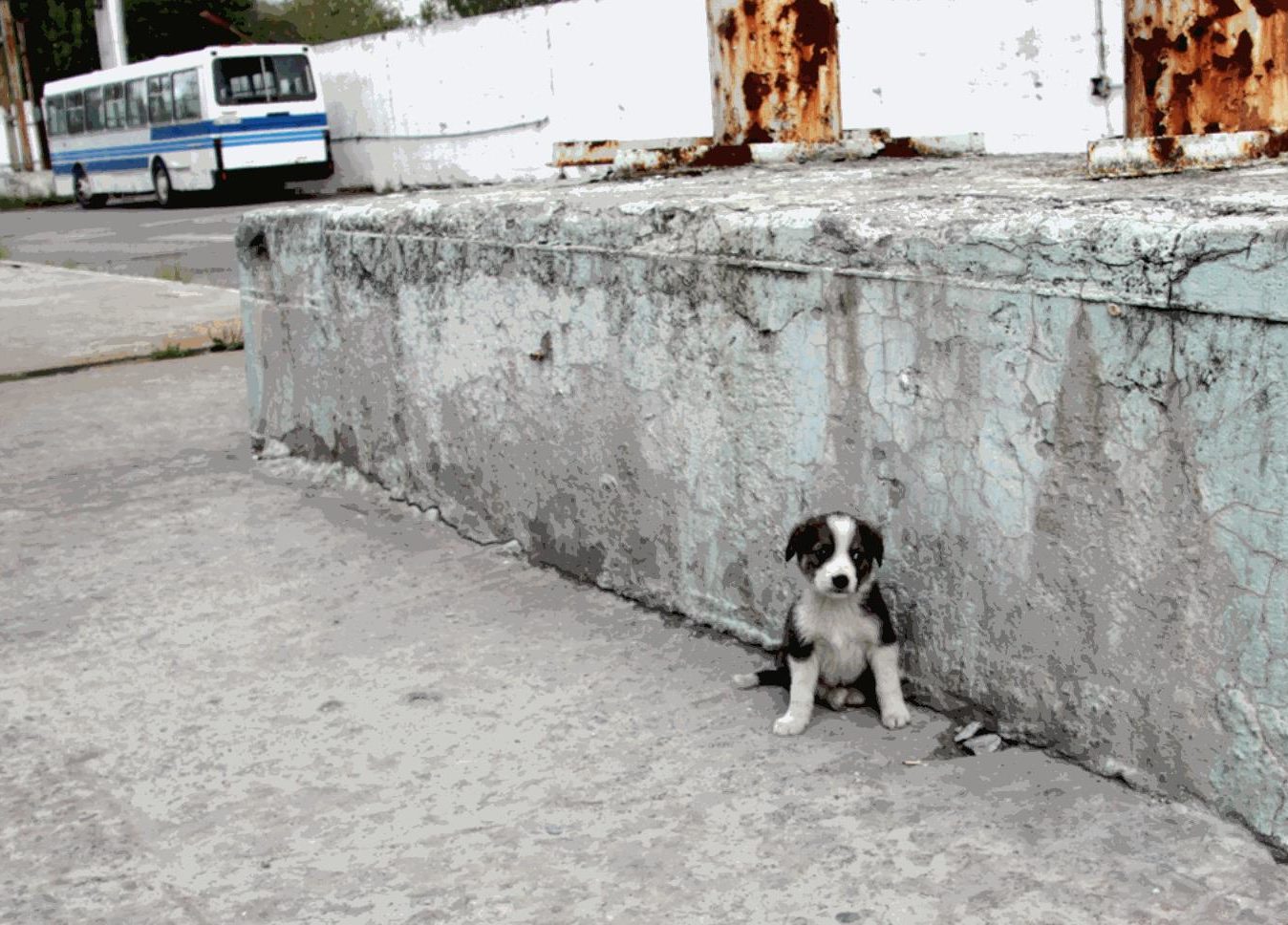
The heart break is unimaginable.
When we hear tragic news through the internet, print media or word-of mouth, it can sound shocking. Yet, we are somehow removed by location and background to really feel the horrors of the reality.
Tied to posts, many animals died of starvation. Compassionate individuals would track paw prints in the snow in hopes of helping these pets. Rescuers found horses, severely traumatized, wandering on the beach.
Despite personal danger, individuals and groups acted to feed and rescue the abandoned animals.
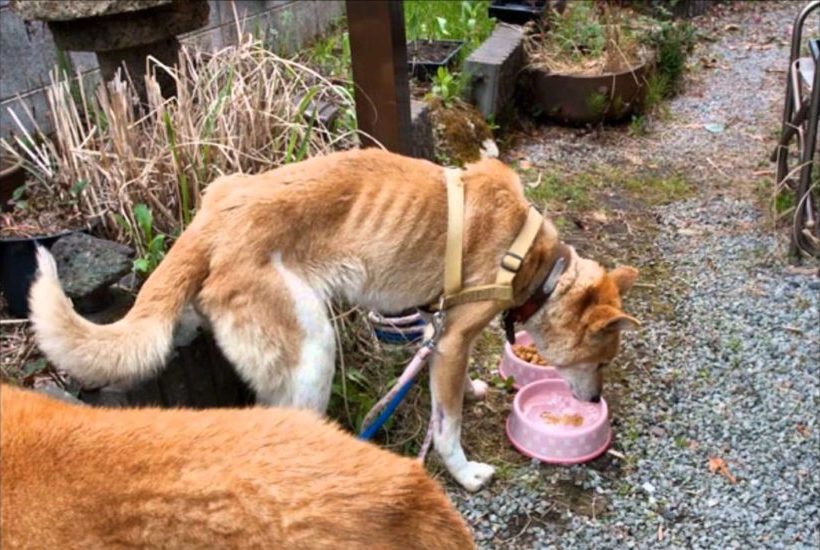
Soon, the government allowed animal rights groups like UKC Japan to enter the exclusion zone and rescue any surviving animals. Volunteers quickly entered the region carrying cages and food.
Many animals were housed in the UKC Japan shelter, which survives on donations. Although it had tracked down 80% of the owners, most can’t reunite with their beloved pets.
They are homeless themselves.
Compassion, in which all ethics must take root, can only attain its full breadth and depth if it embraces all living creatures and does not limit itself to mankind. — Albert Schweitzer
Yet, in spite of the odds, survival instincts were strong. Some emancipated ostriches, left on their own, were found to have laid eggs despite barely being alive. Moreover, like the faithful Hachiko, dogs hang around their homes while living off the land.
They wait for the return of their owners…
What would you do if the unimaginable happened and your pup was “left behind”? Leave your comments below…

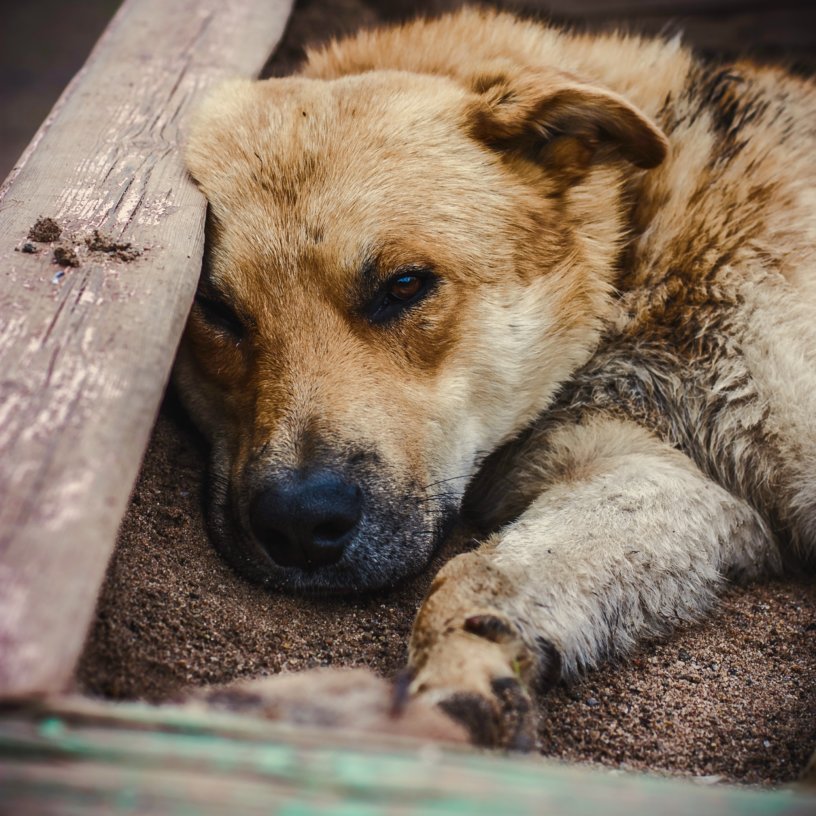
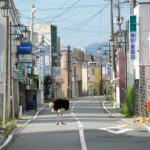

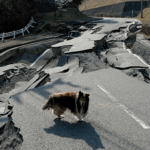
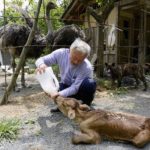
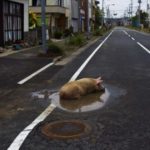
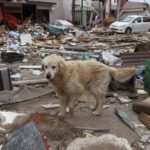

 >
>
